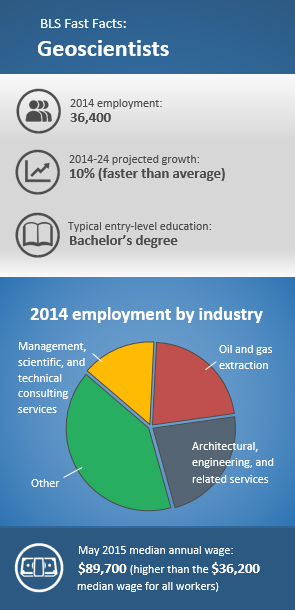All Categories
Featured
Table of Contents
Geophysicist, Exploration - Job Descriptions in Mahogany Creek WA 2020

Other possible geophysicist majors that aren't geophysics or geoscience consist of: Climatic sciences and meteorology Chemical and physical oceanography Earth science Environmental science Hydrology and water resources science Products science By earning any geophysicist degree, and by taking the necessary geology courses, you need to qualify for an entry-level position as a geoscientist or geophysicist.
Eventually, students should learn: a branch of geology that takes a look at the various elements of minerals, consisting of chemical structure, internal crystal structure, and physical residential or commercial properties. the study of rocks and the processes and conditions that form and transform them with time. There are a couple of neighborhoods in this branch of geology, consisting of igneous, metamorphic, and sedimentary rocks.

This field takes a look at structural rock features such as cleavage, faults, joints, and little folds. They should likewise find out the computer skills required to: analyze data develop digital models and maps operate geoscientists' software application Trainees need to also make the most of all opportunities to acquire real-world experience. Ambitious geophysicists need to expect to hang out learning: in the classroom in the field in labs Clearly, skills taught in the classroom are really crucial for striving geophysicists.
Geophysicist in Gosnells Aus 2021
For example, geoscientists spend a lot of their time outside when working in the field, so they should have "outdoor abilities" like outdoor camping and operating boats, airplane, and other cars. Due to the fact that they invest a lot time in remote locations, it's vital that geophysicists likewise have the physical stamina to carry needed equipment on their walkings to areas of research study.
The task offers: a high typical and top incomes a high rate of personal satisfaction amongst geophysicists low work stress favorable task outlook Additional information on earnings capacity and job outlook is detailed below. For students wanting to land an entry-level function as a geoscientist or geophysicist, it takes four years, or the time needed to complete a bachelor's degree in geophysics or an associated discipline.
Some research study positions in geophysics need postgraduate degrees. If you plan to teach at a college or university, you need to make a Ph. D. in geophysics or an associated field. The time it takes to make a Ph. D. varies by institution and program, however it generally takes four to six years beyond the bachelor's degree.
What Can I Do With A Major In Geophysics? in Beechina Oz 2020
A lot of companies require prospects to have a bachelor's degree in geophysics or a carefully associated discipline for all entry-level positions. As an outcome, there's no way around the degree requirements for ending up being a geophysicist.
Currently, 31 states require licensing for geologists, although licensing is not constantly needed, particularly for entry-level work. The states that do problem licenses use the Basics of Geology Examination (FGE), which is administered through the National Association of State Boards of Geology (ASBOG). Now that you understand which degree for geophysicist jobs you require, you'll require to land a task, and it's essential to discover how much cash you can make in this profession.
According to BLS, the median yearly wage for geoscientists is $93,580. According to BLS, specific markets offer higher wages for geoscientists, and in some cases, they offer higher-than-average earnings.
Geophysics in Thornlie Australia 2020
In truth, mining, quarrying, and oil and gas extraction uses over $32,000 more each year than the typical yearly wage for this profession. The federal government, too, uses over $10,000 more in revenues than the national average for geoscientists. In addition to industry type, geographical area can greatly impact profits for this profession.

The top-paying states and their yearly mean wages, according to the BLS, include: Texas $166,720 Oklahoma $149,630 Pennsylvania $120,590 Hawaii $120,130 Colorado $107,260 These five top-paying states use much higher earnings than the average for this profession. Earnings for geoscientists in Texas are over $73,000 higher than the nationwide average.
It must come as no surprise that most of these high-paying locations remain in Texas and Oklahoma, but some are found in California, Louisiana, and Colorado. The leading 10 highest-paying metro locations for geoscientists are: Houston-The Woodlands-Sugar Land, Texas: $188,400 Tulsa, Oklahoma: $186,490 Midland, Texas: $167,040 Odessa, Texas: $147,080 Oklahoma City, Oklahoma: $145,350 Bakersfield, California: $130,080 Urban Honolulu, Hawaii: $124,470 New Orleans-Metairie, Louisiana: $121,030 Washington-Arlington-Alexandria, DC, VA, MD, WV: $120,180 Denver-Aurora-Lakewood, Colorado: $116,910 For some geoscientists and geophysicists, living in a metro city is not as enticing as living in a smaller community.
Latest Posts
Geophysical Survey In Archaeology in Neerabup Australia 2022
Geophysicists in Glen Forrest WA 2020
Geophysical Survey in Lockridge Oz 2023